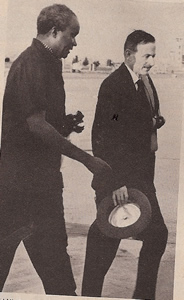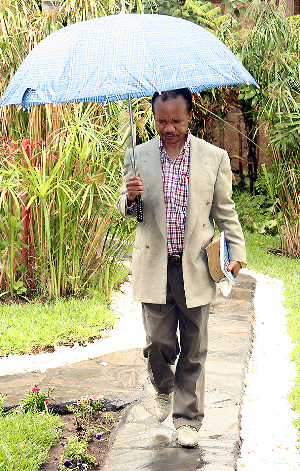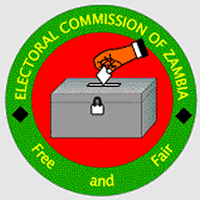 It’s the year 1969, President Kenneth Kaunda summons Chief Justice James Skinner to explain a judgment passed by Justice Evans that the President did not agree with.
It’s the year 1969, President Kenneth Kaunda summons Chief Justice James Skinner to explain a judgment passed by Justice Evans that the President did not agree with.
“I am satisfied that Justice Evans has acted on the principles of Justice,” Skinner said. “It is one of the functions of the judiciary to criticize the action of the executive or its individual servants whenever the need arises. If that right is denied then the courts would no longer effectively carry out their duties.”
The interchange between President Kaunda and the Chief Justice Skinner was followed by organized and widespread demonstrations against the judiciary throughout Zambia. An attack was then made on the High Court in Lusaka by the Zambia Youth Service, a uniformed force of the Republic.
The building was broken into, in consequence of which members of the judiciary had to barricade themselves in chambers. The demonstrations that were held throughout the country lead to several magistrate court buildings being broken into. Posters grossly abusive to members of the judiciary were carried by the demonstrators and offensive statements concerning Chief Justice Skinner and Mr. Justice Evans were made by officials of UNIP.
This outburst however, shocked President Kaunda. This was the scene of events in September 1969 that lead Chief Justice James Skinner, to resign. He had been legal advisor to UNIP and a close friend of Kenneth Kaunda. He had been highly influential in helping to steer the country towards independence. He was the only white minister in Zambia’s first government when he held the justice portfolio.
In his letter of resignation, he stated that the abuse to which he was subjected by UNIP officials must have affected the confidence of “the common man” in him as chief justice and in a judiciary headed by him. Confidence in the judiciary was a delicate bloom in Africa, he wrote, “and I am not going to risk destroying it in Zambia”. He felt that if the rule of law was to prosper in Zambia, ordinary Zambians must have confidence in the judiciary, only then would full democracy be brought about .

Skinner was adamant that the independence of the judiciary was necessary to preserve democracy and the rule of law, and thus resigned. He was unwilling to work in a system that betrayed these principles although, President Kaunda condemned the violence that had occurred. He later apologized for what had happened and invited Skinner to resume his duties, Skinner declined. President Kaunda was caught between his respect for an independent Judiciary and the nationalist outrage of Zambian citizens over the Portuguese who had been bombing Zambian villages in order to hit the anti-Portuguese guerrillas.
Skinner believed that the anti-white riots of 1969 stemmed from the atmosphere created by the early years of white minority rule in Rhodesia and the bombing of Zambia by Portuguese planes from neighboring Angola.
He however remained on good terms with President Kaunda after his resignation.
He had been appointed to the position of Chief justice in March 1969 and resigned in September of the same year after this clash with President Kenneth Kaunda over the freeing of the two Portuguese soldiers who had been sentenced to two years imprisonment for illegally entering Zambia.
The two men were freed by another high court judge-an Englishman, Justice Evans who referred to the cases as trivial. Skinner had supported his colleagues decision and in the ensuing demonstrations, anti white demonstrators ransacked the high court in Lusaka.
Who was James Skinner? Born in Clonmel, Republic of Ireland in 1923, James Skinner came from a legal family with strong nationalist views. His grandfather was a solicitor; and his father the County Registrar for Tipperary. Skinner was educated at a Jesuit school, Clongowes Wood College, where he first developed his skill at debating. He went on to read law at Trinity College, Dublin where he was a member of the debating and historical societies.
After graduating he was called to the Irish Bar by King’s Inns in 1946 and practiced as a barrister on the Leinster Circuit. In 1950 he married the daughter of a German schoolteacher and was called to the English bar (Gray’s Inn).
In 1951, in response to a newspaper advertisement he moved with his wife to Northern Rhodesia where he joined a practice which became Wasserberger, Flemming and Skinner.
The Nationalist movement was beginning to gather momentum and, as a radical from an Irish Nationalist background, he found himself defending Northern Rhodesians (Zambians) who were being prosecuted by the British. He said “I did not like the social or racial atmosphere at that time and I reacted against it”. Mr. Skinner was one of the first white men to join Dr.Kaunda’s United National Independence Party when it was formed in 1960. He became the party’s legal advisor and deputy director of elections. Mr Skinner became a Zambian citizen by registration.
He was ostracized by many whites. Friends cold shouldered him, acquaintances ignored him and strangers insulted him.
In 1962 he risked a jail term by refusing to register for potential National Service under the Federation of Rhodesia and Nyasaland Defense Act, stating the Federal Army was a terror force used to oppress the majority of Northern Rhodesia’s citizens.
He stood for parliament in the same year but lost for lack of European support in the very complex voting system of the time. Undeterred he continued to campaign for UNIP and two years later he won Lusaka East on the basis of “one man one vote” beating his African opponent by a handsome margin. He was the only white man to be returned by electors who were all African.
He was a private secretary in the pre- independence government of Northern Rhodesia and became Zambia’s first Minister of Justice when independence came in 1964.
He was involved in top level policy making decisions and played a major role in drawing up Zambia’s constitution.
He wrote UNIP’s judicial policy a cornerstone, of which was that Zambia would have an independent judiciary. At the time he clarified in a letter in the Leader that “Independence” implies freedom from interference by the Executive or Legislative”. A principle he fought to uphold for Zambia when he later resigned as Chief Justice.
He was a firm believer in nationalizing the judiciary and had pressed Mr Mainza Chona, who became independent Zambia’s first minister of justice, to complete his legal studies.
He was appointed a Queen’s Counsel for Northern Rhodesia in 1964 and remained a key figure in UNIP, helping draft the nation’s constitution.
He was minister of justice from October 1964-January 1965. Attorney General from January 1965 – March 1969, in addition Minister of legal affairs January1967 – December 1968. Chief Justice from March 1969- September 1969.
On his return from Zambia, he practiced at the Irish Bar before being appointed Chief Justice of Malawi in 1970, a position he held for 15 years.
During the presidency of the dictatorial Hastings Banda he managed to ensure the stability and independence of the judiciary.
He returned to England in 1985. In 1986 he took up a further high judicial office in the UK as a Social Security Commissioner, a post equivalent to that of a high Court Judge, where he heard appeals on points of law relating to Social Security. He underwent a triple heart bypass operation during this period. This did not, however, dissuade him from continuing his professional career until he was 72, the statutory retirement age for judges.
Outside of work, Skinner was a prolific reader, particularly of history and Irish Affairs. He is survived by his wife and by his three sons and two daughters.
James John Skinner QC was born on 24 July 1923. He died on 21 October 2008 aged 85.




